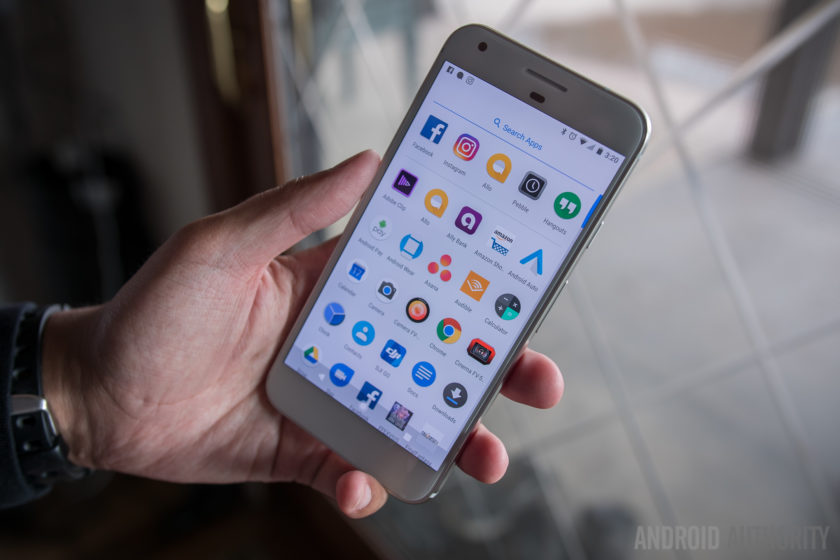 The most important advantage of any mobile device is that it is truly mobile. The ability to use a mobile device anywhere, anytime to instantly connect to the limitless resources of the Internet provides an unprecedented level of freedom. You can contact friends who are overseas, chat with your family, play online games, use social networks, run a business, manage finances, share photos, manage remote devices and so much more.
The most important advantage of any mobile device is that it is truly mobile. The ability to use a mobile device anywhere, anytime to instantly connect to the limitless resources of the Internet provides an unprecedented level of freedom. You can contact friends who are overseas, chat with your family, play online games, use social networks, run a business, manage finances, share photos, manage remote devices and so much more.
The risk of losing privacy when using mobile devices is not so obvious, but it really exists. For home desktop computers, you typically use a customized system with firewalls, antivirus, and antispyware protection. Outside the house, your connection is completely insecure, it depends on cell towers or the nearest Wi-Fi point.
Privacy and security threats arising when using mobile devices
Unfortunately, it is necessary to understand that the regular use of mobile devices carries many risks and threats for their owners. Your cell phone hardware, how you connect to the Internet, and, most importantly, the applications you use, create many threats to your security, one of which is the risk of losing privacy.
Cybersecurity experts divide potential threats into two types: threats generated by the user and external threats. The security threats you create yourself depend on how you connect, where you connect, what you do when you connect, and ultimately who you connect to. External threats include dangerous viruses, malware and spyware, Internet monitoring, hacker attacks, and so on.
Studies have shown that the average smartphone user has about 26 applications installed and that almost every app has some kind of security problem. Applications, as a rule, request to agree to provide some data from your device, which means that before installing the application on your mobile phone, you are forced to provide access to it. The biggest problem is that many applications, if not most of them, have access to most of your important data, even when there is no special need for this. This triggers the risk of losing privacy and personal data.
Mobile devices in almost 100% of cases use wireless connection protocols. Any unsecured connection whether routed via telephone towers, Wi-Fi or Bluetooth, can be monitored and often hacked. Unprotected Internet connections create favorable conditions for the penetration of viruses and unwanted intrusion into your personal life. Such connections allow hackers, Internet Service Providers and the governments to penetrate your device and, subsequently, monitor you.
Since most applications do not have special protection mechanisms, this means that anyone who has at least some experience in this business can track or hack the mobile application software.
The place where you connect also greatly affects security. Airports and hotels that provide public Wi-Fi access are unsecure. These hotspots, although they are very convenient, often remain unprotected and serve as penetration points for intruders of different kinds. Viruses and malware can be relatively easy introduced onto your devices using unprotected connections. Hackers often use such connections to steal your data.
The problem gets exacerbated by the applications installed on your phone. These pieces of software often independently, in the background, without your knowledge, connect to the network and send all data about you, your location, and about your online activities.
Blocking unsafe websites and using only the most reliable apps reduces the number of virus attacks, minimizes data collection, reduces the risk of loss of privacy, and the likelihood of data theft. Types of sites to avoid include low-profile gambling portals, sites that promote quick enrichment schemes and some suspicious chat rooms.
The United States National Security Institute reports in its research that 97% of all applications create privacy risks. From a security point of view, 86% of applications do not use any protection at all, and 75% do not encrypt data.
The risk of loss of personal data or the risk of loss of privacy occurs even when only one bit of information about you becomes available online. A hacker can use this bit to mine numerous databases and resources and build your full profile.
Some people think it is absolutely safe to meet and contact strangers online at any time. Whenever you communicate online, it may seem that it does not affect your individual security and that it cannot create any risk. However, your opinion will change when you recall all the cases of theft, harassment, blackmail, assault, violence, and even murders that happened during a real meeting with someone people knew only from the Internet or social networks.
The growing number of social networks also makes it easier for criminals to find their victims. The weakest and most unprotected suffer from crooks the most, these are children, old people, lonely or just gullible people, as well as many others who can be easily deceived. The risk of losing privacy while using social networks is huge as many users mindlessly share important personal information.
Major security threats and privacy risks arising from mobile apps
- Poor data storage security
Important data includes your personal data, as well as authentication tokens, browsing history, passwords, location data, cookies, and more.
- Vulnerable servers
The servers used in modern applications are getting better every day, but it does not mean they are all securely protected. Vulnerable servers allow hackers to steal your data.
- Unprotected connections
Even if the application stays that it is configured to work with HTTPS, this does not mean that it is always so. Too often, apps switch to HTTP in order to increase speed and\or reduce bandwidth. Unprotected connections mean that any data that you transmit through the application can be freely viewed by anyone who wishes it.
- Insecure handling of sessions
A good application terminates connection after a few minutes of inactivity. Bad applications, for the most part, will keep you connected until you log out.
VPN is the best way to secure mobile apps
Of course, VPN cannot stop you from sharing your personal information online, protect you from all cyber crooks, or prevent websites from tracking your actions, but VPNs can minimize the risk of losing privacy and ensure your online anonymity. VPNs mask the digital markers of your device so that you look like an unidentified object traveling through the Internet. VPN (virtual private network) is the most advanced form of personal and business security that you can use on the Internet.
VPN offers its clients various solutions regardless of what OS you use. You can find a VPN app for Android, iOS and other mobile operating systems.
VPN uses a combination of different modern technologies. First, before your data gets transferred from your device to the Internet, it will be packed in an anonymous form and encrypted so that it cannot be traced. Then, before you connect to the Internet, the encrypted packet with your data is transmitted to the VPN server. It appears online with a new IP address. This means that your connection is protected, and your ID is completely disguised so no one from the outside can attack or influence it.
Mobile devices appeared in our life in order to win our hearts. They will stay in our lives for a long time. Undoubtedly, we all will continue using mobile apps no matter what risks and security threats they carry.









